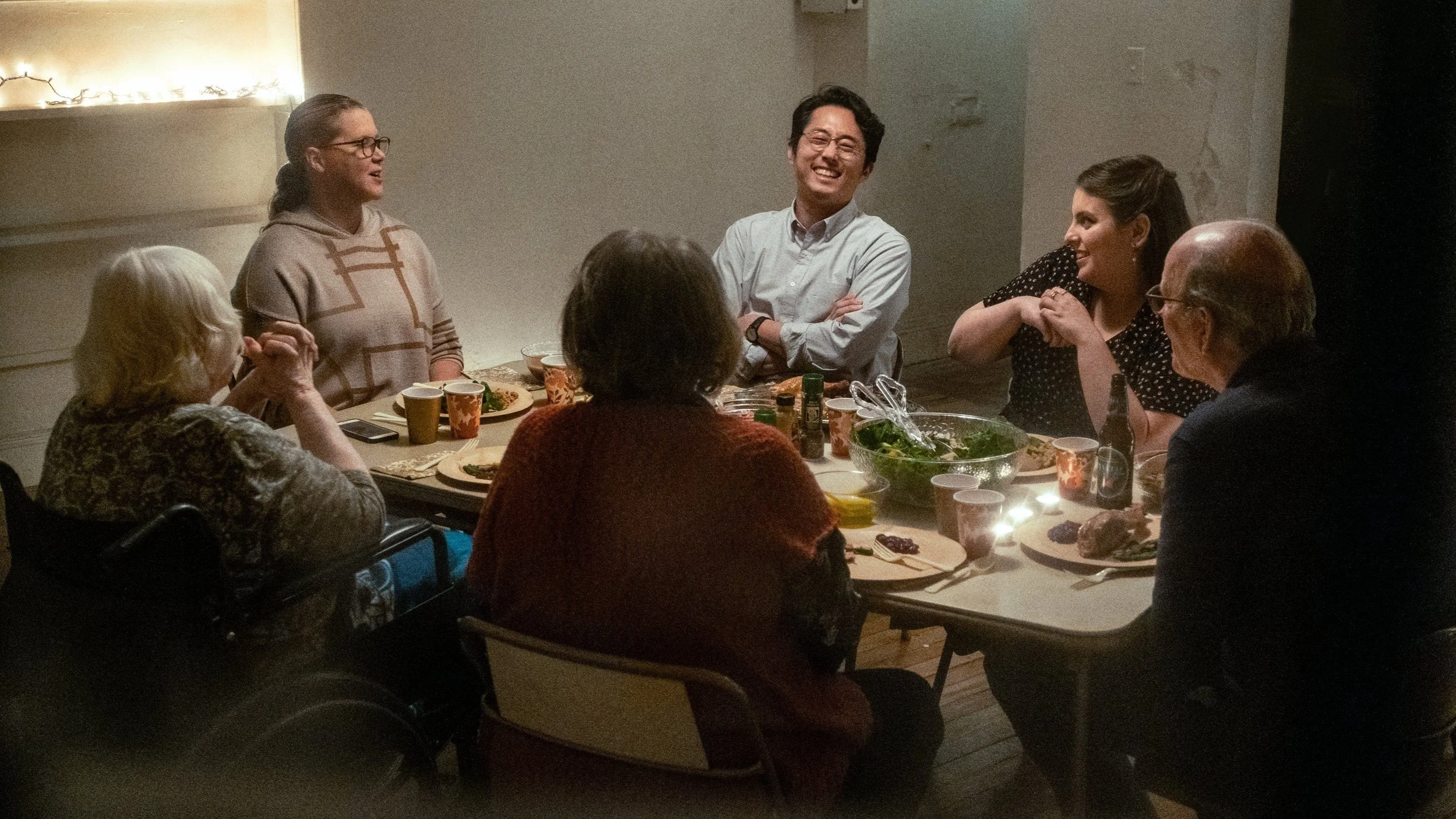The Humans
Stephen Karam brings his own Tony-winning one-act family drama to the screen with mixed results.
There is a recent precedent for what Stephen Karam has done here in the form of Florian Zeller’s adaptation in collaboration with Christopher Hampton of his stage play The Father. Like Zeller, Karam makes his film debut with a screen version of his own play and he even goes one step further in that the screenplay is credited to Karam alone. His play, a one-act work, first appeared in 2014 and was staged off-Broadway in the following year before transferring to Broadway and winning the 2016 Tony Award for Best Play. Now, retaining just one cast member from that acclaimed production, Jayne Houdyshell, The Humans arrives on our screens.
Any adaptation of a stage work for the screen is hazardous and all the more so when, as here, you have a work with a cast of five and a single setting. That setting is a two-storey apartment in Manhattan which has just been acquired by Brigid (Beanie Feldstein) and her partner, Richard (Steven Yeun), who is a Korean American. They are being visited by Brigid's parents, Erik (Richard Jenkins) and Deirdre (that’s Houdyshell’s role) and her grandmother (June Squibb) who has been brought along despite suffering severely from Alzheimer's and relying totally on wheelchair transportation. In addition Brigid’s older sister, Aimee (Amy Schumer), a lesbian who has just suffered the breaking up of a relationship, comes in from Philadelphia to join them. The occasion for this visit is in part a housewarming but it is one that coincides with Thanksgiving. Consequently, The Humans is a work that could easily have been a formula piece in that it follows the familiar course of showing a family gathering which will involve tensions and the revelations of secrets which have been wholly or partially hidden.
The praise which greeted The Humans has evidenced approval for the way in which the writing not only creates convincing characters but also entirely avoids the obvious melodrama that this formula can embrace. The playing down of drama may be welcome for the way in which it avoids clichés but the extra realism of this approach conflicts with the strangest feature inherent in this work. Karam has chosen to play up the setting itself by making this new home an apartment in which sudden noises and thuds - be they from outside or from adjoining apartments - can jolt the inhabitants. In addition, the camera readily notices cracks in the walls and leaky pipes, moments of sudden shock are included as in horror films and, as though it had a character of its own, the apartment seems possessed of its own life and to entrap those inside it. Asked about this element, Karam has admitted that it could be down to his personal love of the thriller genre. But emphasising these elements doesn't turn this film into an example of the chiller: it is very much a work in which talk dominates over action and consequently all this baggage suggests some kind of symbolism. But of what exactly? Problems and decay may affect the lives of the characters as well as being seen to be present in the building, yet that is hardly enough to justify all this extra weight.
However, if that feels unsatisfactory, even more fatal is the way in which Karam has now chosen to transform the stage original by constantly electing for offbeat shots. He has wisely employed the excellent Lol Crawley as his photographer, but what dominates are the compositions and set-ups which Karam favours. He has a uniformly excellent cast and players who, lacking any actorly presence, can create characters who seem real. Yet the way in which Karam chooses to observe them betrays all of that by making everything feel artificial. Again and again he chooses shots in which the walls of the apartment fill much of the screen space or are so placed that they become frames for distant shots of the characters. In contrast to that, there are moments when Karam opts for an ultra-big close-up of an individual, but for most of the time there is a distance between us and the people that prevents us from feeling any involvement with them. The Humans may invite us to consider how families create a bond even as they lead to friction between the individuals within them but, in turning his play into a film, Karam has imposed on it a hugely self-conscious style: we may want to see the characters he has created, but instead we keep seeing the lens through which he has chosen to view them. It looks like an artist’s conceit.
MANSEL STIMPSON
Cast: Richard Jenkins, Jayne Houdyshell, Amy Schumer, Beanie Feldstein, Steven Yeun, June Squibb.
Dir Stephen Karam, Pro Louise Lovegrove and Stephen Karam, Screenplay Stephen Karam, from his play, Ph Lol Crawley, Pro Des David Gropman, Ed Nick Houy, Music Nico Muhly, Costumes Ann Roth.
A24/IAC Films-Curzon.
107 mins. USA. 2021. US Rel: 24 November 2021. UK Rel: 24 December (Curzon Home Cinema); 26 December 2021 (in theatres). Cert. 15.


